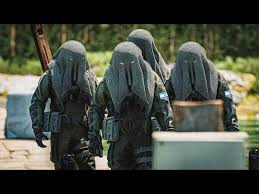Syed Zubair Ahmed
On a blustery, cold January day in 2011 in Lahore, a CIA contractor and former US Special Forces operative was driving through a busy street when two motorcyclists who allegedly attempted to rob him—or that is what he claimed—were shot and killed by him. In the ensuing chaos, he hit another car, got caught and was promptly charged with murder. You might think this was a minor incident, but Washington didn’t.
Raymond Davis was hardly a big fish in the CIA pond, yet the Obama administration threw a diplomatic tantrum generally typical of a superpower. Diplomatic relations and the $2 billion in annual aid to Pakistan were frozen. The US falsely claimed Davis was a diplomat, deserving immunity. Pakistan’s investigation showed he was a Central Intelligence Agency (CIA) operative and therefore wasn’t covered by diplomatic immunity. Initially, it refused to back down despite the political heat.
In the end, after a 50-day standoff, Davis was whisked back to the US, but not before $2.34 million of blood money exchanged hands, reportedly compensating the victims’ families. He later wrote about this cloak-and-dagger saga in his 2016 book The Contractor: How I Landed in Pakistan’s Deadliest Jail and Then Escaped, revealing how the CIA operates when things get messy.
CIA’s Long Arms
The Raymond Davis affair revealed how deeply the CIA was operating in Pakistan’s backyard, raising public anger about America’s covert meddling in a country it called an “ally” in the war on terror. The Pakistanis felt betrayed by their trusted ally.
This brings us to the present: the CIA, the agency behind countless covert operations all around the world, lectures India on cooperating with Canada over Hardeep Singh Nijjar’s assassination. It’s as if the US forgot it’s been running around the world in the shadows since the CIA’s inception in 1947, toppling governments, orchestrating coups, and assassinating foreign leaders—all in the name of national interest. But let’s not dwell on the hypocrisy or “double standards”, as India’s foreign minister S. Jaishankar put it in a recent interview . He didn’t hold back in calling out Canada’s double standards and pointed out how it is quick to gather intel through its diplomats on foreign soil but becomes very protective when it comes to limiting similar activities by diplomats from other nations on its own turf.
Indeed, while Canada plays the victim, it conveniently turns a blind eye to the unchecked privileges its own diplomats enjoy in India. Jaishankar, ever direct, put it plainly: “Double standards is a very mild word for it.” His pointed remark wasn’t just a dig at Canada’s hypocrisy but also an indictment of the wider Western duplicity.
Take the recent case of the US charging former Indian intelligence agent Vikas Yadav with being involved in a plot to assassinate Sikh separatist Gurpatwant Singh Pannun in New York. Now, imagine if the tables were turned. Would the US sit quietly? Absolutely not. By now, Washington would have launched a full-scale diplomatic offensive to bring its man home, just like it did in the above-mentioned case of Davis. And if this led to a potential diplomatic row, so be it. The hypocrisy is so obvious.
West’s Unquestioned Hypocrisy
In the murky realm of espionage, agencies like the CIA, Mossad and MI6 have always played by their own rules, causing diplomatic rifts, regime changes and the occasional assassinations. But when the tables turn, if at all, well, it’s all about the rule of law and international cooperation. I do not suggest the Indian spy agency RAW is doing what the likes of CIA, Mossad and MI6 have been doing for decades without being questioned by anyone. The US, for instance, never lectured Israel for Mossad’s countless extraterritorial activities overseas. India is cooperating with the US in the Vikas Yadav case. It wants to cooperate with Canada in its investigation of Hardeep Singh Nijjar’s murder upon receipt of credible evidence.
Jaishankar’s view isn’t just an Indian perspective—countries across the Global South, and even some in the West, are getting increasingly fed up with the blatant foreign policy double standards.
‘Ajax’ To ‘Condor’, CIA’s Myriad Assassination Plots
The US government’s own report on assassination plots involving foreign leaders reveals some shocking truths about the CIA’s covert operations overseas. The report Alleged Assassination Plots Involving Foreign Leaders wasn’t fully declassified and released until July 23, 2002. The report, also known as the Church Committee report, investigated alleged CIA assassination plots against foreign leaders, including Cuba’s Fidel Castro and Congo’s Patrice Lumumba. The report also mentions other foreign leaders who were targeted for assassination, although their names were not disclosed.
Despite the White House’s efforts to bury the report, the Church Committee conducted a thorough investigation into the CIA’s assassination plots. It confirmed the CIA’s involvement in these plots and recommended legislation to prohibit assassinations. The reports also raised important questions about the ethics and legality of targeted killings, which remain relevant today. And yet, the CIA often disregards its rule books and ethical standards.
Some of its notable plots were
- Operation Ajax (1953): Successfully overthrew Iranian Prime Minister Mohammad Mosaddegh, consolidating Shah Mohammad Reza Pahlavi’s power. This was a joint operation between the CIA and Britain’s MI6.
- Bay of Pigs Invasion (1961): Failed to overthrow Cuban leader Fidel Castro, resulting in embarrassment to the US and loss of life.
- Operation Condor (1970s-1980s): Supported Latin American dictatorships in eliminating leftist opposition, leading to human rights abuses.
In more recent times, the CIA’s extraterritorial actions in the Middle East, especially during the ‘War on Terror’, have had long-term destabilising effects. US drone strikes, covert actions in Pakistan, Yemen and Somalia and operations in Iraq and Afghanistan have sometimes led to increased radicalisation. While these operations are aimed at counterterrorism, the resulting instability often fuels new cycles of violence and anti-American sentiment.
Mossad’s Misdemeanours
Many experts in the West are bracing for a fiery Israeli strike on Iran in response to Tehran’s October 1 missile attack. But here’s the catch—it may not come from the skies at all. Instead of sending jets and missiles, Israel could very well stick to its trusted playbook: cyberattacks or political assassinations. After all, these methods have proven highly effective in the past, often executed with the help of local assets within Iran. So, while everyone waits for a military show of force, Israel might be quietly sharpening its digital knives or preparing for another covert strike that leaves no fingerprints but sends a very loud message.
It is widely believed, and not disputed by Israel, that Mossad has been actively involved in covert operations inside Iran for years, particularly targeting Iran’s nuclear programme. One might recall the cyberattack using the Stuxnet virus, which disrupted uranium enrichment in 2010. In 2018, Mossad is believed to have stolen 55,000 pages of documents and 183 CDs from Iran’s nuclear archives, revealing the country’s nuclear programme details.
However, Mossad’s most high-profile and controversial actions have been the assassinations of Iranian nuclear scientists. These operations are believed to be part of a broader Israeli strategy to delay or dismantle Iran’s nuclear capabilities, which Israel sees as an existential threat. Between 2010 and 2012, at least five Iranian nuclear scientists were assassinated in Tehran in a series of precision attacks that many attributed to Mossad. Israel has not commented on them. The most notable method involved motorcyclists attaching magnetic bombs to the victims’ cars during busy commutes. The victims included Majid Shahriari, a key figure in Iran’s nuclear research, and Mostafa Ahmadi Roshan, a prominent scientist at Iran’s Natanz nuclear facility. These killings sent shockwaves through Iran’s scientific community, severely damaging its nuclear programme and provoking outrage from Tehran, which accused Israel and the West of orchestrating the murders.
The Strikes On Iran’s Nuclear Ambitions
The most striking assassination occurred in 2020 when Mohsen Fakhrizadeh, considered the father of Iran’s nuclear weapons programme, was killed in a highly sophisticated operation. Reports suggested the use of a satellite-controlled machine gun to eliminate Fakhrizadeh near Tehran. This assassination was a major blow to Iran’s nuclear ambitions. Mossad’s operations inside Iran demonstrate the agency’s deep penetration into the country and its relentless efforts to undermine Iran’s nuclear ambitions.
Iranian secret agents have also been active against Israel, with the Israeli government successfully foiling Iranian plots to assassinate Israelis in Israel, Cyprus and elsewhere.
MI6 And Its Legacy Spy Network
The United Kingdom, as the original colonial power, practically wrote the book on covert operations. MI6, founded in 1909 as the Empire’s main Secret Intelligence Service, was tasked with protecting British interests worldwide—sometimes by any means necessary. One of its most infamous escapades was its role in the 1953 coup against Iran’s Prime Minister Mohammad Mossadegh, a man who dared to nationalise Iran’s oil, threatening Britain’s golden pipeline. As mentioned above, the MI6 teamed up with the CIA for Operation Ajax, toppling Mossadegh and reinstalling the Shah, whose authoritarian reign would last until the 1979 revolution.
In more recent times, especially during the early 2000s, MI6 found itself embroiled in another scandal, this time involving Libya. Partnering again with the CIA, MI6 was accused of helping to render Libyan dissidents back to Gaddafi’s regime, where they were tortured. The most prominent case was that of Abdel Hakim Belhaj, an opposition leader kidnapped and sent to Libya allegedly with MI6’s help. After years of legal battles, Belhaj won an apology from Prime Minister Theresa May in 2018.
India’s RAW Power
India’s Research and Analysis Wing (RAW) was established in 1968 as the nation’s primary external intelligence agency. While RAW has gained significant prominence within the global intelligence community, its capabilities still trail behind those of the CIA, Mossad, and MI6. With a reported budget of around $700 million, RAW operates on a fraction of the resources available to the CIA, whose budget hovers between $18-20 billion. Its main mandate is national security, with a sharp focus on counterterrorism—disrupting terror outfits, cutting off funding to extremists, and monitoring state enemies abroad.
Contrary to popular belief, RAW does not operate with unchecked power. Its operations are governed by strict directives from the Indian government and, at least on paper, must adhere to Indian laws. While RAW plays a crucial role in safeguarding the nation, it is by no means a rogue agency; it works within the limits of its mandate, with each mission requiring government approval.
From the CIA’s colossal resources and Mossad’s precision strikes to MI6’s legacy of colonial espionage and RAW’s rising influence, these agencies navigate the murky waters of international politics and diplomacy. Yet, they remain indispensable tools of statecraft in an increasingly complex world.



